
It Touches the Soul: Why Argentinians Sing Russian Orthodox Music
/ Главная / Russkiy Mir Foundation / Publications / It Touches the Soul: Why Argentinians Sing Russian Orthodox MusicIt Touches the Soul: Why Argentinians Sing Russian Orthodox Music
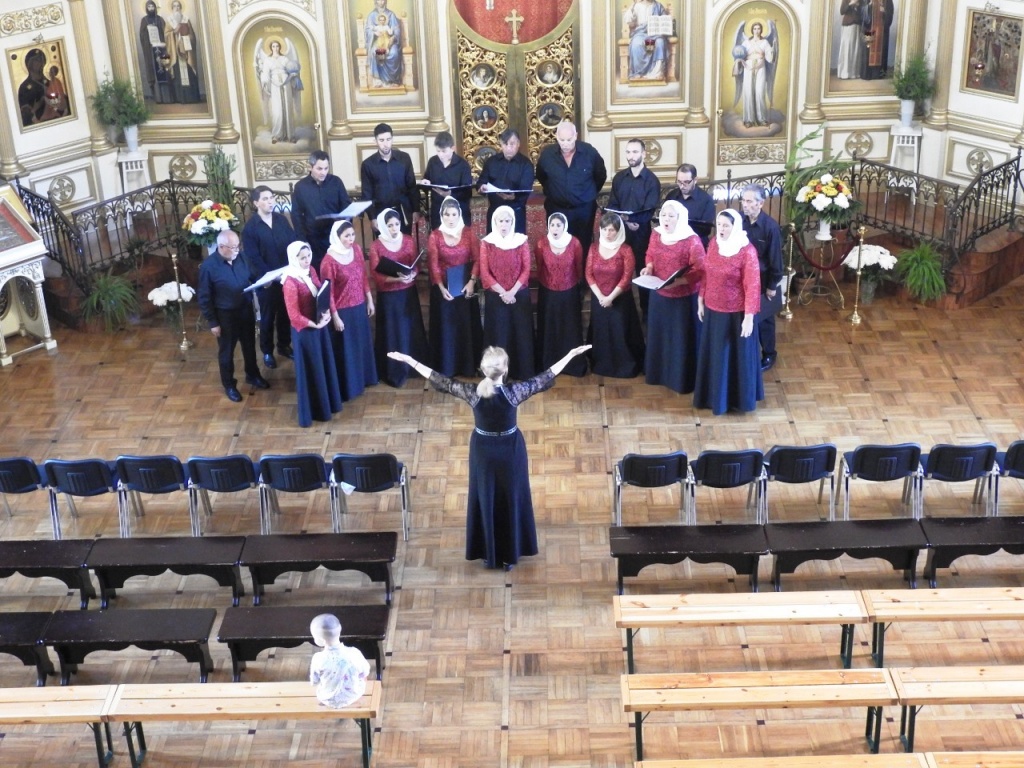
– Your choir's male ensemble recently won first place at the Crystal Chapel International Festival of Sacred Music. It is a marvel that the contest of sacred music is won by a group from remote Argentina which appears to have very little connection with Russia and the Orthodox culture. How did you come up with the idea of founding a choir that performs Russian music, including sacred one?
– We have a very small town. The Russians who moved here did not feel like participating in the social activities of the community. I've been living in Bariloche since 2000, There is an Orthodox chapel that I attended. I used to sing in church choirs back when I lived in Russia, and I really wanted to do it again. We formed a small group of five Russian compatriots who had moved to Argentina.
Later, the chapel services were discontinued for various reasons. However, the whole concept of performing with a chorus of Russian church music was still there. So I approached my Argentinian friends with the offer to join our choir. They gladly agreed: "What shall we sing?" I suggested singing both Orthodox church music and other classical music that was appropriate for the choir. That's how our group originated. At first, there were 5 of us, then 12, then 16.
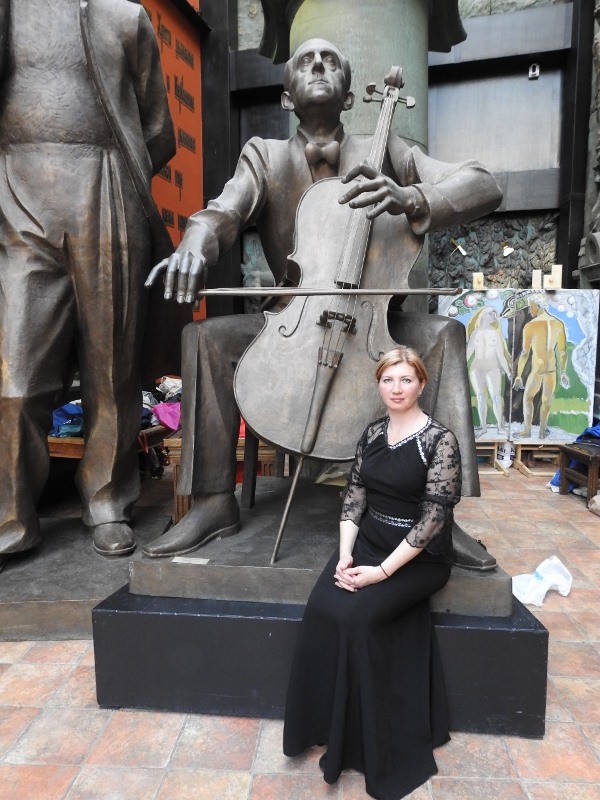
Photo: Olga Ludkova
– It is astonishing that Argentinians who don't speak Russian sing Russian music. How did you manage to make them interested in it?
– Russian cuisine! First, I invited them over for borsch and pirozhki. Then we read Russian poetry and books. We watched Russian movies. Finally, it turns out that now all the people in my choir are Argentines, although some of them have Russian roots. There are now 24 men and women in our choir.
– How often do you get together for rehearsals?
– We have regular rehearsals twice a week. Nothing can stop us from getting together on Mondays and Fridays from eight to ten o'clock in the evening, be it snow or rain. All of our group members are employed. Many of them teach in schools, and some work very far from the center. Nevertheless, all of them are sure to come.
We don't have our own location for rehearsals, though. We used to meet at someone's house. It's a common practice here to get together around a large table because everyone has a big family. And then we found a place in the Catholic chapel. We were invited there by a Catholic priest, Father Jorge. Everything is on a charitable basis. And now our rehearsals take place there.
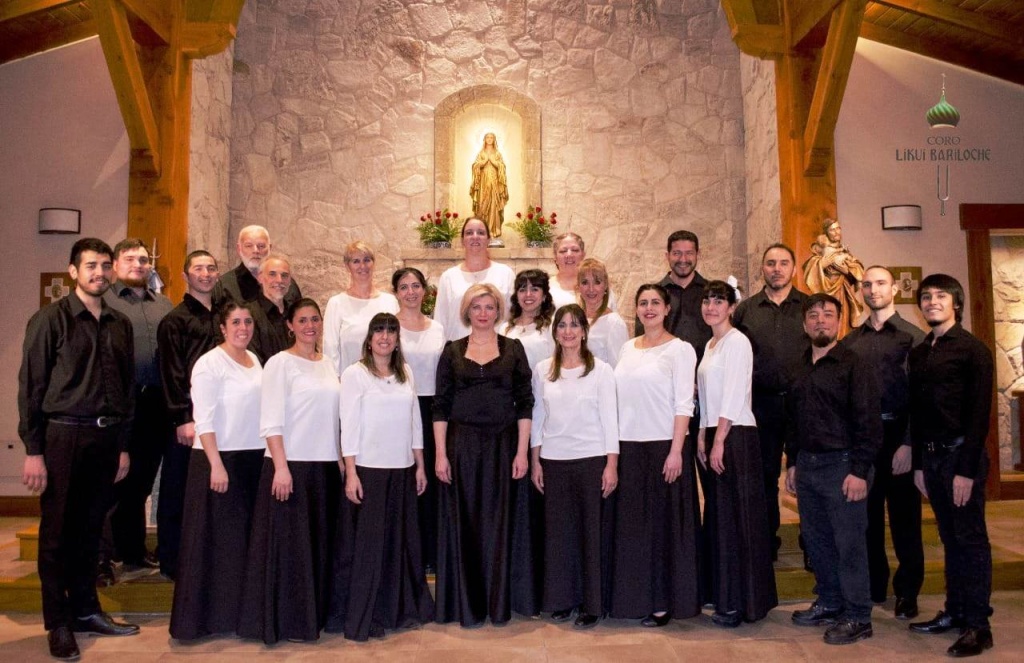
– At the International Festival of Sacred Music, your men's ensemble won with the song "I Will Go with My Horse to the Field by Night" by the Lyube Rock Band. Why did you choose this song? What else do you have in your repertoire apart from sacred music?
– I really enjoy looking for a special repertoire. One day we were handed music sheets by the composer Alexei Abutkov (Alejo Abutcov). It turns out that he was a pupil of Nikolai Rimsky-Korsakov and eventually emigrated to Argentina, to the Province of Mendoza. He established a conservatory there and also composed music. After his death, many music sheets were left behind. And no one wanted them. Finally, some sheets were burned in the street. One of his conservatory graduates happened to be passing by at that very moment and saved the remaining music sheets by handing them over to the museum. Then the museum called us and offered to take this legacy of the Russian composer. That's how his works were added to our repertoire.
Why have I picked the song about the horse now? It's my personal connection to the Russian soul. When I suggested this song, our male participants immediately felt it. They all perceived it in their own way. There is something in it for everyone.
Speaking of Orthodox music... There are a lot of religious believers in Argentina. I am an Orthodox Christian, and there is a group of people in our choir who also practice Orthodoxy. The rest of our members experience this music through words as I explain its content in detail. They have great respect for Russian sacred music.
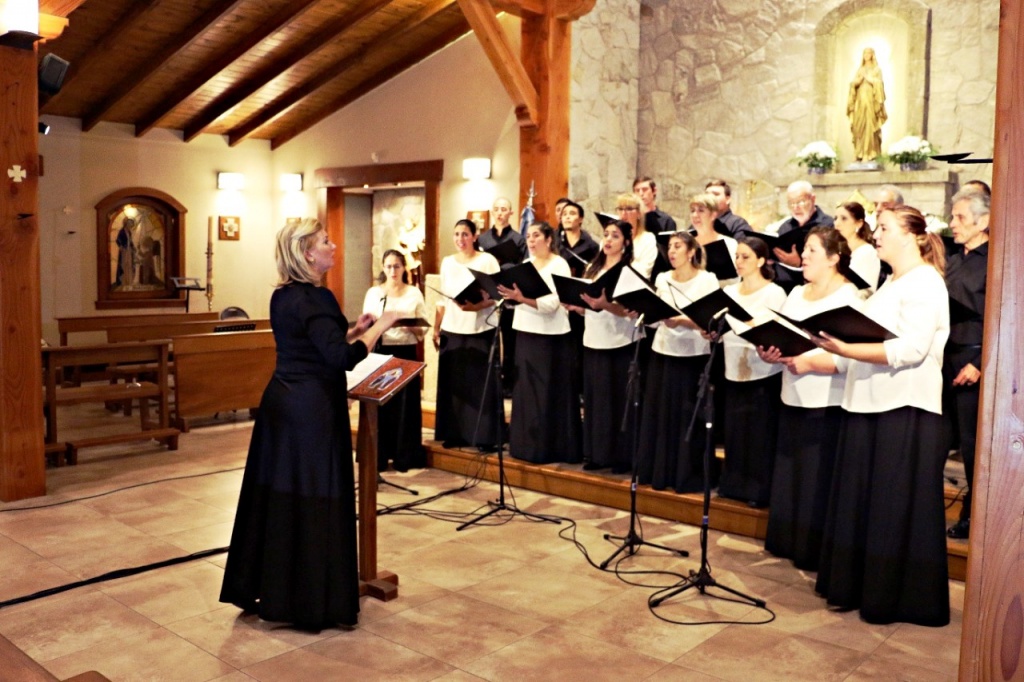
– Your choristers also sing in Russian! They have to learn the words that are not so easy. How do they do it?
– We practice phonetics. I am a choirmaster with a lot of experience, and when I hear foreign choirs singing in Russian (you can't understand anything as if they had potatoes in their mouths), it hurts. I am a meticulous person, so I explain everything in detail and ask my choir members to make sure the words sound right.
Well, many of our participants have Russian roots, mostly grandparents and even great-grandparents. So, they do not speak Russian. Nevertheless, according to many of them, they feel Russian inside, especially when they perform Russian music, and something touches their souls.
– Obviously, it is not easy to sing songs in a foreign language in a choir for years. Something should definitely touch their souls…
– Argentines are extremely music-sensitive and respond to music in an emotional way. There are many amateur musicians among them, and their music is very melodious. At the same time, there are many foreigners living in Argentina. We have some ethnic communities in Bariloche as well. There are Russians, Ukrainians, and Belarusians, and we all get on well together. The repertoire of our choir includes some Ukrainian music. My mother is Ukrainian, and my father is a Russian from Novgorod.
– Was this the first time your choir participated in the Crystal Chapel Festival?
– No, it was in 2017 that we first took part in this festival. Back then we came to Moscow at the invitation of a lovely person and a remarkable musician, Olga Kosiborod, who is the artistic director of the festival. In 2017, we were third among 40 choirs participating in the event. Two years later we went again and were ranked second. This year the festival was held online. It is an event of a high level. There are a lot of participants from other countries.
– What impressions did your fellow choir members have of the trips to Moscow?
– Everyone had deep experience. There was something that made the hearts miss the beat. They all pointed out that Russians were very friendly and hospitable, the food was delicious, and nature was beautiful. Nevertheless, there is something else that pulls us in. Back in Argentina, we also visit Russian and Ukrainian communities in other towns. And these meetings are always very heartwarming.
– Your choir has probably already grown to be a local object of interest in the country, hasn't it?
– It has and not only in Argentina. We've performed in many places, such as Brazil, Paraguay, and Chile. We really enjoy going on tours. We've been all over Argentina. And we were warmly welcomed everywhere. This music is appreciated by everybody, so we get a big audience.
I think our choir is unique because many people say they haven't heard this kind of music before. Everyone is certainly quite surprised that Argentinians sing our orthodox music, and that makes the choir unique. So we choose a difficult repertoire, and this is well appreciated. Sometimes, at our concerts, the audience is so captivated by the music that they literally have tears in their eyes. Then you talk to them and they admit that they were deeply moved by the performance.
My husband sings in the choir, my son sings, and we discuss it in the family all the time and work out a new repertoire.
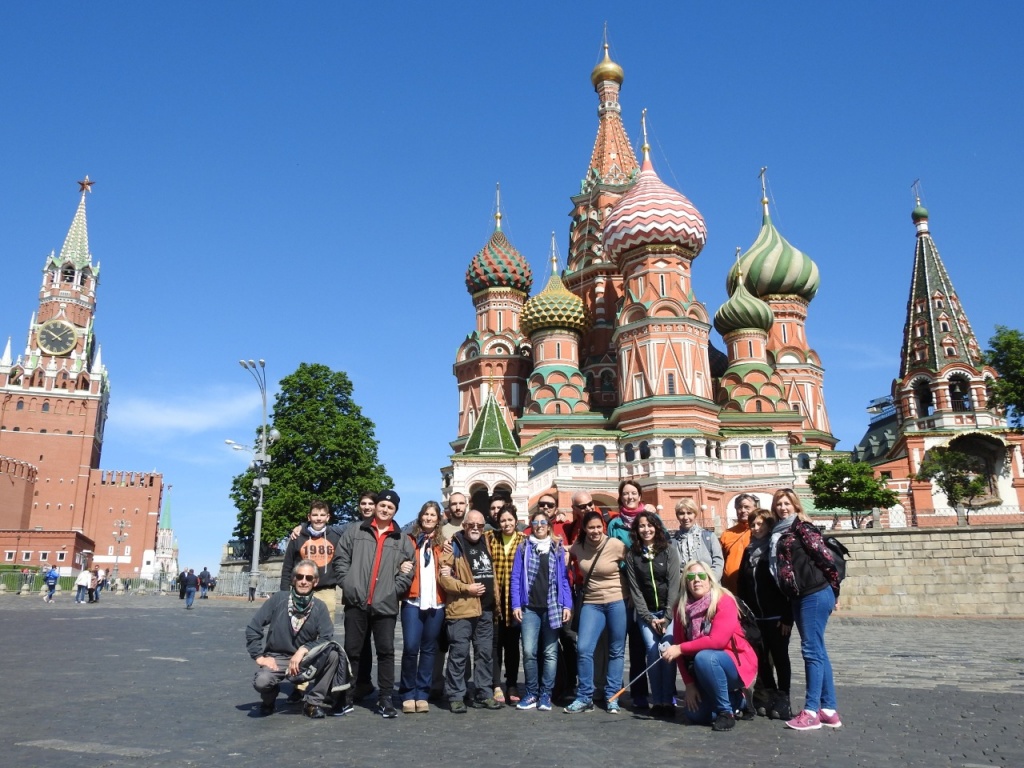
– You have probably a few dozens of songs in your repertoire by now, don't you?
– I would say more than 40 pieces. We try to perform series based on works of Russian composers, such as Sergei Rachmaninoff, Pavel Chesnokov, the famous author of sacred choral works, and Pyotr Tchaikovsky. Nevertheless, we also perform The Thin Rowan Tree arranged for nine voices.
– Have your friends from the choir started to learn Russian if they sing in Russian?
– Yes, of course. We always discuss what we are singing about. It would be really nice to have a Russian school in our town. Yes, we do have teachers of Russian here, and our choir members take Russian lessons. I remember our trip to Brazil. We went to the beach during our leisure hours. So my guys took their Russian language textbooks with them!
We had a concert in St. Petersburg. I told the audience about the members of the choir. When we finished singing, a lot of people crowded around us, and everyone started talking to my singers in Russian. That is, everyone believed that they speak excellent Russian since they sing so pure. That's why I always tell them: guys, learn Russian!
New publications

 Mikhail Kalatozov, a director who transformed the world of cinematography in many ways, was born 120 years ago. He was a Soviet film official and a propagandist. Above all, he was capable of producing movies that struck viewers with their power and poetic language.
Mikhail Kalatozov, a director who transformed the world of cinematography in many ways, was born 120 years ago. He was a Soviet film official and a propagandist. Above all, he was capable of producing movies that struck viewers with their power and poetic language.  Ukrainian authorities have launched a persecution campaign against the canonical Ukrainian Orthodox Church (UOC), the biggest one in the country's modern history. Over the past year, state sanctions were imposed on clergy representatives, searches were conducted in churches, clergymen were arrested, criminal cases were initiated, the activity of the UOC was banned in various regions of the country, and monasteries and churches were seized.
Ukrainian authorities have launched a persecution campaign against the canonical Ukrainian Orthodox Church (UOC), the biggest one in the country's modern history. Over the past year, state sanctions were imposed on clergy representatives, searches were conducted in churches, clergymen were arrested, criminal cases were initiated, the activity of the UOC was banned in various regions of the country, and monasteries and churches were seized.  When Nektary Kotlyaroff, a fourth-generation Russian Australian and founder of the Russian Orthodox Choir in Sydney, first visited Russia, the first person he spoke to was a cab driver at the airport. Having heard that Nektariy's ancestors left Russia more than 100 years ago, the driver was astonished, "How come you haven't forgotten the Russian language?" Nektary Kotlyaroff repeated his answer in an interview with the Russkiy Mir. His affinity to the Orthodox Church (many of his ancestors and relatives were priests) and the traditions of a large Russian family brought from Russia helped him to preserve the Russian language.
When Nektary Kotlyaroff, a fourth-generation Russian Australian and founder of the Russian Orthodox Choir in Sydney, first visited Russia, the first person he spoke to was a cab driver at the airport. Having heard that Nektariy's ancestors left Russia more than 100 years ago, the driver was astonished, "How come you haven't forgotten the Russian language?" Nektary Kotlyaroff repeated his answer in an interview with the Russkiy Mir. His affinity to the Orthodox Church (many of his ancestors and relatives were priests) and the traditions of a large Russian family brought from Russia helped him to preserve the Russian language.

 The leaders of the Friends of the Great Russia cultural association (Amici Della Grande Russia) in Italy believe that the Western policy of abolishing Russian culture in Europe has finally failed. Furthermore, it was doomed to failure from the beginning.
The leaders of the Friends of the Great Russia cultural association (Amici Della Grande Russia) in Italy believe that the Western policy of abolishing Russian culture in Europe has finally failed. Furthermore, it was doomed to failure from the beginning.  Name of Vladimir Nemirovich-Danchenko is inscribed in the history of Russian theater along with Konstantin Stanislavski, the other founding father of the Moscow Art Theater. Nevertheless, Mr. Nemirovich-Danchenko was a renowned writer, playwright, and theater teacher even before their famous meeting in the Slavic Bazaar restaurant. Furthermore, it was Mr. Nemirovich-Danchenko who came up with the idea of establishing a new "people's" theater believing that the theater could become a "department of public education."
Name of Vladimir Nemirovich-Danchenko is inscribed in the history of Russian theater along with Konstantin Stanislavski, the other founding father of the Moscow Art Theater. Nevertheless, Mr. Nemirovich-Danchenko was a renowned writer, playwright, and theater teacher even before their famous meeting in the Slavic Bazaar restaurant. Furthermore, it was Mr. Nemirovich-Danchenko who came up with the idea of establishing a new "people's" theater believing that the theater could become a "department of public education."  "Russia is a thing of which the intellect cannot conceive..." by Fyodor Tyutchev are famous among Russians at least. December marks the 220th anniversary of the poet's birth. Yet, he never considered poetry to be his life's mission and was preoccupied with matters of a global scale. Mr.Tyutchev fought his war focusing on relations between Russia and the West, the origins of mutual misunderstanding, and the origins of Russophobia. When you read his works today, it feels as though he saw things coming in a crystal ball...
"Russia is a thing of which the intellect cannot conceive..." by Fyodor Tyutchev are famous among Russians at least. December marks the 220th anniversary of the poet's birth. Yet, he never considered poetry to be his life's mission and was preoccupied with matters of a global scale. Mr.Tyutchev fought his war focusing on relations between Russia and the West, the origins of mutual misunderstanding, and the origins of Russophobia. When you read his works today, it feels as though he saw things coming in a crystal ball...